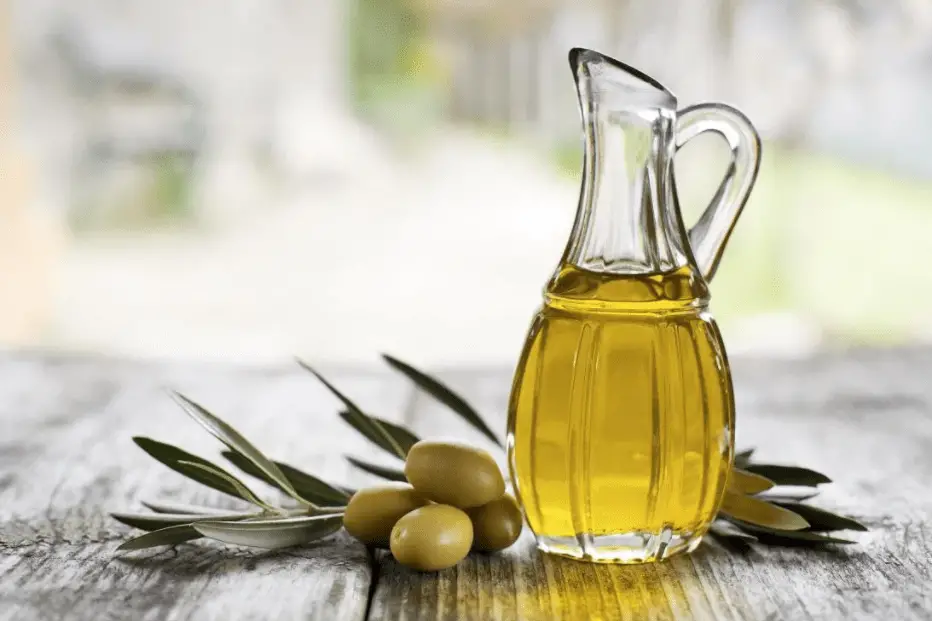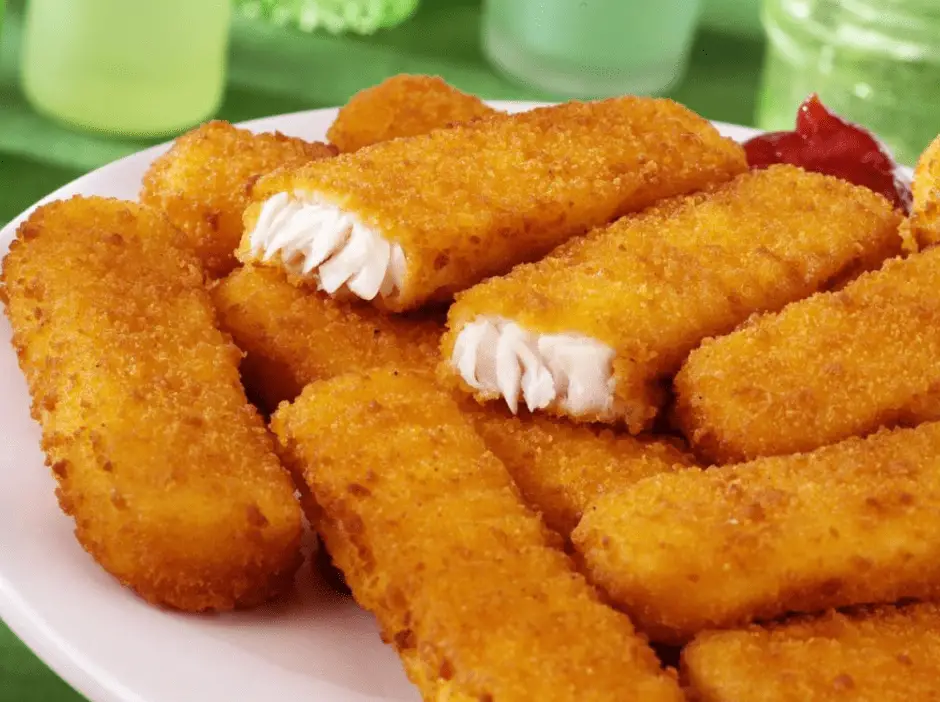
A piece of cast iron cookware that is performing to its total capacity must maintain its gleaming nonstick surface at all times. But, can you season cast iron with olive oil?
You can season cast iron cookware with olive oil. However, the smoking point of olive oil is insufficient to chemically react or polymerize with cast iron to form a nonstick surface necessary to cook with cast iron efficiently.
Can You Season Cast Iron With Olive Oil?
Yes, you can season cast iron with olive oil. Olive oil is a popular choice for seasoning cast iron cookware because it is one of the most accessible oils on the market. Besides, olive oil is fantastic for salad dressings but not great for seasoning cast iron because of its low smoke point.
So which oil is better for seasoning cast iron?
The most excellent seasoning oils have higher smoke points, meaning they only begin to smoke (or ignite) at greater temperatures. For example, olive oil has a smoke point of 450°F, but canola oil has a higher smoke point of 500°F.
When using olive oil, your efforts to season your skillet can disintegrate while cooking in the pan, defeating the purpose of having a protected, seasoned coating. This prevents the seasoning from lasting as long as other oils while imparting a smokier taste to your food.
How To Clean And Season An Iron Skillet With Olive Oil
Cast iron seasoning is a technique that every cook should adopt. It extends the life of your cast iron skillet by reducing rust and forming a protective coating for cooking. Most significantly, when the pan is seasoned, it becomes nonstick.
To maintain your pan in excellent operating order, season it regularly. If food begins to adhere to the pan’s surface, or if you see any rust, clean the pan thoroughly, followed by a thorough re-seasoning.
- First, remove any burned food, rust, or residues of the old coat of seasoning by washing or scrubbing them away with hot water.
- Next, apply a thin layer of your selected oil to the cast iron skillet’s surface.
- Preheat your oven to the specified temperature (the precise temperature depends on the oil’s smoke point, but it’s generally between 350 and 450 °F), then bake the pan for at least one hour on the top shelf.
- Repeat four to five times more, then set aside to cool.
The Best Cast-Iron Skillet Seasoning Oils
Because olive oil is readily accessible, many homeowners season their cookware with it. However, it is not the best oil for seasoning a hard surface such as iron.
Dry oils have a more remarkable ability to make a stronger bond with the iron’s surface. They are exceedingly stable effective, and their viscosity does not alter under high heat.
So, below are some of the best cast iron seasoning oil you can use:
1. Grapeseed Oil
Grapeseed oil is the most often used oil for seasoning cast-iron skillets. It has a high smoke point, low saturated fat content, and is long-lasting.
It bonds incredibly well to the surface of the iron, forming a long-lasting, hard layer over the pan.
Its true strength lies in its high smoke point (420 degrees Fahrenheit), which allows it to withstand intense heat without burning.
It’s the ideal food-grade oil with a neutral flavor and odor. Grapeseed oil is also perfect for seasoning a cast-iron skillet since it is incredibly safe to use in the kitchen.
Because it is high in polyunsaturated fats, it has the best cross-linking, resulting in a long-lasting coating on the pan. It’s also one of the most cost-effective cooking oils on the market.
2. Flaxseed Oil
Despite its low smoke point (325 degrees F), flaxseed oil is one of the most excellent cleaning oils. It dries out naturally and produces a thicker coating on the pan’s surface.
This oil should be your first choice if you want a long-lasting and durable seasoning. Artists and furniture workers utilize it to create a thick, hard surface over their work.
Flaxseed oil adheres to the skillet’s surface quite well. It may provide the ideal nonstick, sheer coating, making your pan dishwashing safe.
Even though flax oil is one of the most excellent oils for seasoning cast iron, it’s critical to use unfiltered, 100 percent organic flax oil.
With low-quality flaxseed oil, re-seasoning will not work. Check whether the oil you chose contains any additives, flavors, or other oils.
Flaxseed oil must also be refrigerated immediately after purchase since it contains omega-3 fatty acids.
Make sure you choose a flaxseed oil that is 100 percent organic and pure to get the most excellent flavoring effects. If you’re looking for a tried-and-true flaxseed oil review, look no further because Flaxseed has got you covered.
3. Soybean Oil
Soybean oil is an excellent alternative for a relatively healthy and cost-effective seasoning oil.
Soybean oil, unlike other oils, has no synthetic chemicals, fat, or soybean oil. Since it is highly refined oil, there is no risk of allergies.
It also has a high smoke point and is affordable, making it an excellent choice — second only to grapeseed oil.
4. Canola
Because most vegetable oils have a smoke point of 450 degrees F or above, they are ideal for seasoning iron skillets.
Compared to sunflower or maize oil, it has a lower percentage of saturated fat (8%). This amount, however, is sufficient to produce a stable seasoning oil.
It also contains many Omega-3 fatty acids, particularly Alpha-linolenic Acid (ALA). Because it dries rapidly and develops a thick, strong coating of fat on the pan, it’s a superior choice for seasoning.
5. Animal Fats
Others, however, advocate for the use of traditional saturated fats.
While cooking, animal fats like butter tend to season your pan naturally. There’s no need to purchase a separate seasoning oil or wait for it to bake down.
The fat layer will be sufficient to keep your meal from adhering to the iron pan.
Tips for a Well-Seasoned Cast-Iron Pan
Seasoning a pan may appear simple, but it needs accuracy and attention.
Here are some suggestions for protecting and maintaining your cookware’s seasoning coating. Preparing your pan for seasoning before pouring the oil would be best.
- Using soap and hot water, clean your pan thoroughly to eliminate any packaging oils and food residue.
- Rinse well, pat dry, and treat it with a heat source of at least 200 degrees Fahrenheit.
- Allow it to cool before proceeding with the seasoning. This step ensures that the pan’s surface is spotless and ready for a thorough seasoning.
1. Remove Excess Oil
A sticky residue may remain on the surface even if you’ve correctly seasoned your cast-iron pan. This accumulation of extra oil hasn’t entirely turned to season. It can be re-baked as a simple fix.
- Place the pan in the oven upside down this time. The surplus oil will be cooked off by direct heat exposure.
- Preheat the oven to 44 degrees F and bake the kitchenware for one hour. Allow it to cool before putting it away in your cabinet.
2. Dark Residue
If you’re grilling or cooking acidic items at high temperatures, your seasoning may be overworked, which means there’s a danger of a black residue forming on the pan’s surface.
Don’t be concerned if part of the residue comes off during cleaning. It’s natural and will fade with continued use.
3. Avoid Using Metal Spatulas
The seasoned coating on your cast-iron pan can be removed using a metal spatula or scouring pad.
The essential objective is to keep the seasoning intact. You should only handle cast-iron cookware with silicone, wooden, or plastic spatulas.
Choosing the correct oil for seasoning will result in a nonstick coating that is firmer, sturdier, and more effective on the pan.
Therefore, investing in a high-quality seasoning oil for long-term use is preferable to putting in the next available oil.
Related Questions
Does Olive Oil Go Rancid On Cast Iron?
Dutch ovens benefit greatly from olive oil. Some seasoning might get rancid because people don’t use their ovens as frequently as their skillets.
How Often Should You Season Cast Iron?
You should oil your cast iron skillet after each usage to get the most out of it. Three to four times a year should be enough depending on how much you use it.
Can You Ruin A Cast Iron Skillet?
Although your cast-iron skillet is durable, it is not invincible. There are a few definite ways to spoil the seasoning, or even worse, to destroy your equipment.

